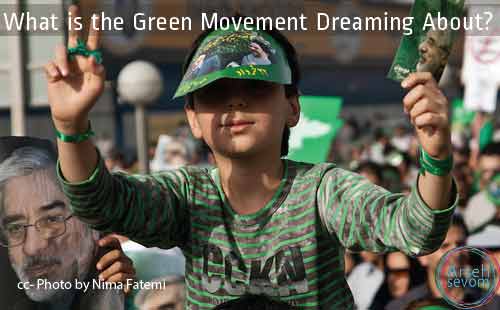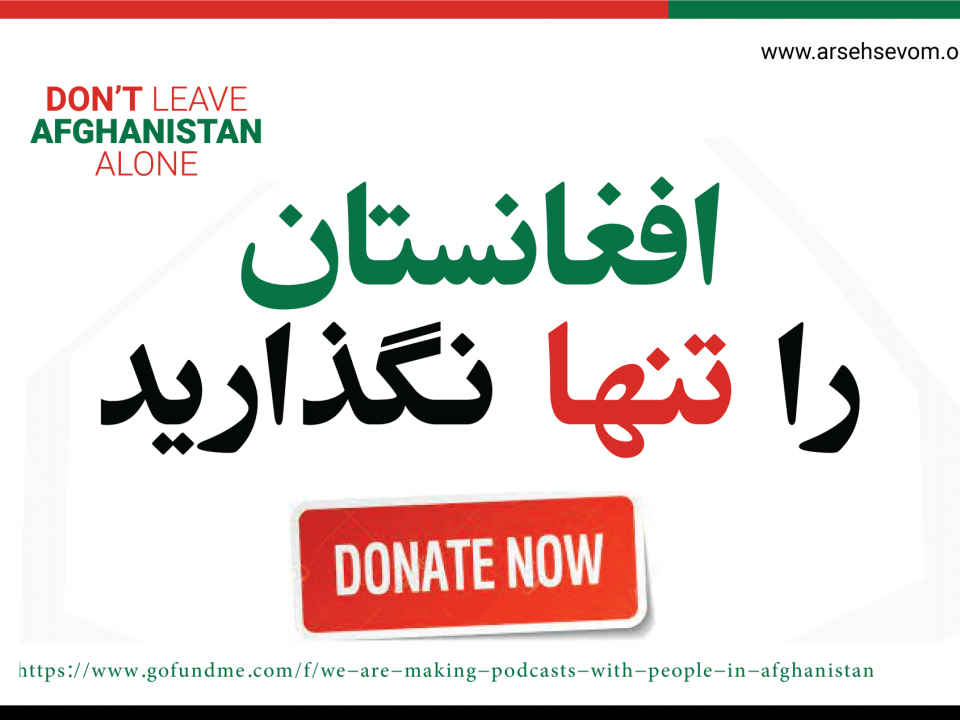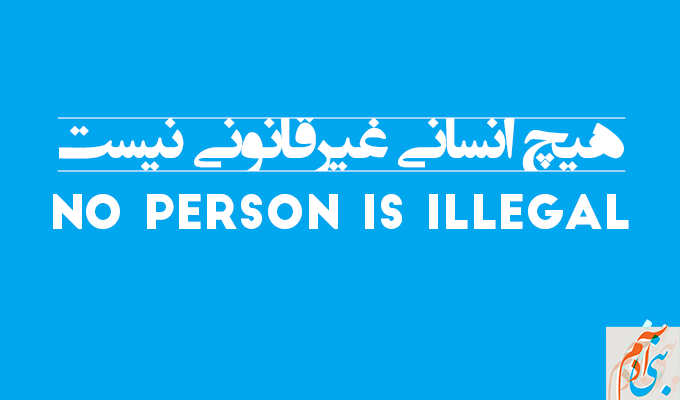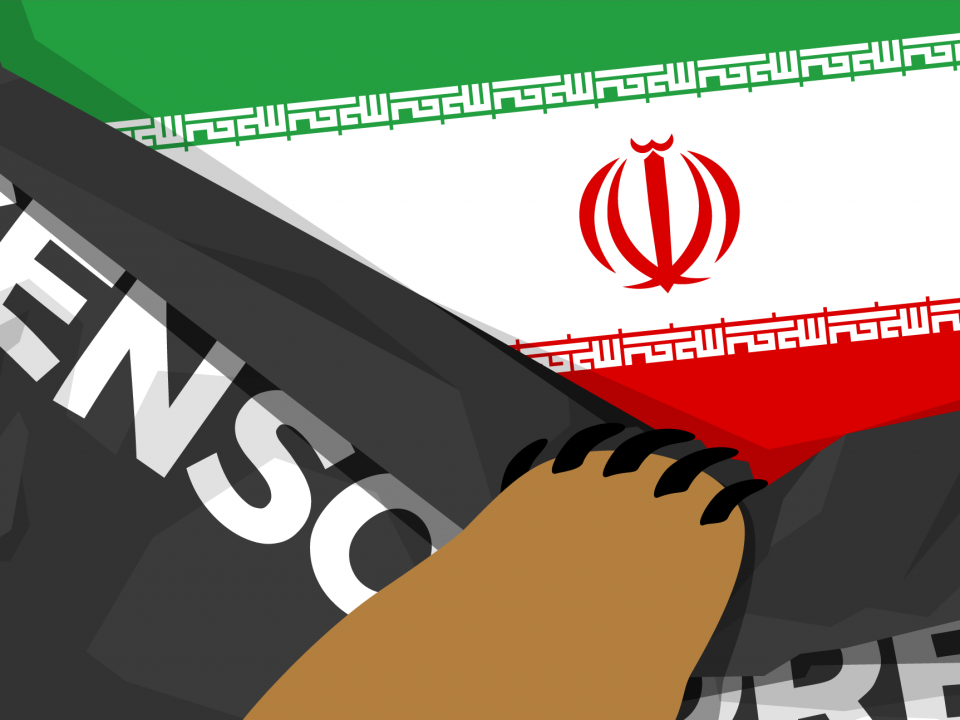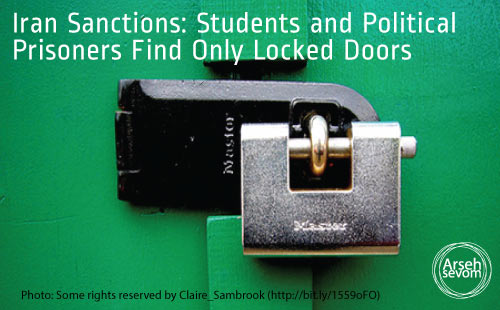
Iran — Sanctions Lock Doors for Civil Society
August 20, 2013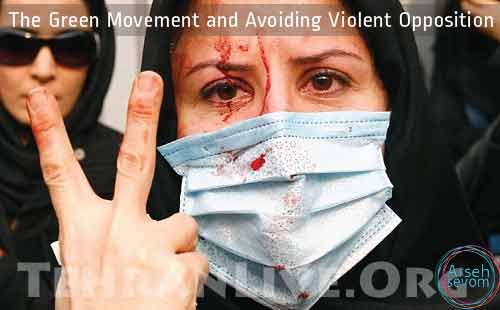
The Green Movement and Avoiding Violent Opposition
August 28, 2013
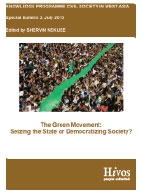
The Green Movement:
Seizing the State or Democratizing Society? Edited by Shervin Nekuee, published by the Hivos Knowledge Programme
The Green Movement four years after the 2009 protests
Arseh Sevom: The Hivos report, The Green Movement: Seizing the State or Democratizing Society, was timely released in the wake of Iran’s 2013 presidential elections and Hassan Rouhani’s electoral victory. It takes a look at the Green Movement after four years of protest, asking questions about the role of civil society, the shortcomings that need to be overcome, and the challenges ahead. Arseh Sevom’s Elena Cavagni has been reading the report. In a series of four short posts, she summarizes its findings.
by Elena Cavagni
What is the Green Movement Dreaming About?
The document is structured in three sections: editorial, introduction, and featured articles written by prominent Iranian intellectuals and civil society activists. Each article critically analyzes different aspects of the Green Movement, such as its vision and strategy, its relationship with the women’s movement and with civil society, and its discourse on non-violence. The authors contribute their own perspective, making the report a small mirror of the movement’s heterogeneity. Even with all the different perspectives, the authors agree on two points:
a) The acknowledgement of the crucial role of the civil society to bring forward a democratic transition of Iran.
b)”Social mobilization alone is not sufficient to bring about a regime change, let alone a sustainable democracy.” (Kawa Hassan).
Instead of a celebration of the Green Movement, this report presents a deep, constructive reflection on the identity and organizational challenges awaiting Iranian civil society on its path to democracy.
Kawa Hassan, Hivos Knowledge Officer and author of the editorial piece, best captures the theme of the report by reformulating Michael Foucault’s What are Iranians dreaming about? into What is the Green Movement dreaming about?
The answer lies in the capacity of the Iranian civil-political rights movement to strategically reflect on its identity, organization, and goals. Hassan writes that the movement needs “a new narrative for an alternative social order that is truly tolerant, pluralist, democratic, today and tomorrow, and that would result in the (re)definition of a bigger ‘us’.”
Defining a More Inclusive Us
In the first chapter Nema Kelari, freelance researcher and journalist, holds that bridging the differences of various social movements is crucial for the transition to democracy. “Democratizing society is the start of democratizing the state,” she writes. Because the Green Movement “has failed to keep all the forces of the movement together and unified” theoreticians and activists should [be] “opening doors to more democratic solutions in Iran’s transition to democracy.”
As an antidote to political apathy and, conversely, the radicalization of civil-political activism, the movement should find practical solutions to bring various social groups together. Kelari writes that activists should “elaborate nonviolent and creative ways to bring about the acceptance of different identities and entities, the attempt to understand the demands of different social groups though respectful dialogue, the investigation of possibilities for collective action, and the ability to organize and mobilize in a more effective way.”
This includes a language and ways of mobilizing people that differ from the ones used during the Islamic Revolution.
What she argues for is the necessity for more inclusion and diversity within the movement. If Iran is to transition into a more democratic society, consensus will have to be reached through and despite difference. She writes:
“Understanding and reaching a consensus on the main demands of the various social groups, reaching a common social platform and translating that platform for all participants of the movement are fundamental issues […]”.
To address these issues the Green Movement needs to redefine itself as a more inclusive “us” and foster acceptance of “the other.”


